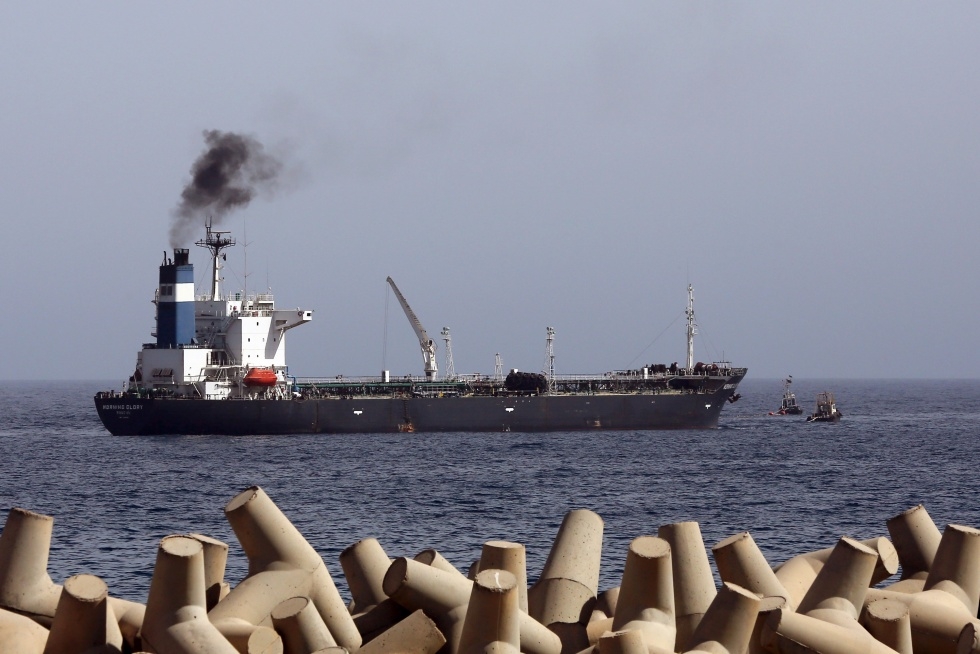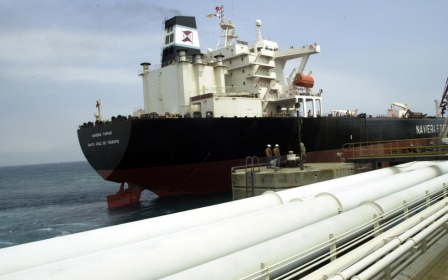Iraqi Kurdish oil sales up 60 percent in a month: authorities

The Kurdish Regional Government, or KRG, increased its exports to world markets through Turkey to 300,000 barrels per day, according to Kurdish official sources.
The KRG Ministry of Natural Resources announced on Friday on its website that the exported oil amount increased by 60 percent in November. Daily flow rates through the Kurdish crude pipeline to Turkey have represented an increase over the last four months, the statement said. The daily amount of exported oil in August has risen from 185,000 to nearly 300,000 in the first week of November, the ministry added.
The government's plan is to export around 400,000 barrels per day by the end of this year and increase the amount to 500,000 barrels per day by the end of the first quarter of 2015, according to the statement.
"The KRG remains on track to meet its production target of 1 million barrels per day by end 2015/early 2016. On behalf of the people of the Kurdistan Region, the KRG exercises its Constitutional rights to manage, produce, market and sell the natural resources located under its control," the government stated.
KRG has exported 34.5 million barrels of oil since January 2014. 21.5 million barrels were sold through Turkey's southern Ceyhan Port while the remaining 13 million barrels of oil has been exported through Mersin, another port in the south of Turkey.
The statement said that $2.1 bn was received in cash and $775 mn in kind for product swaps from exported oil, corresponding to $2.87 bn in total.
"From the cash payments, some $400 mn has been used to pay both trucking costs and as part payment to the oil producers. Hence, the net cash received by the KRG during this period is $1.7 bn," said the statement.
It was also underlined that the KRG has also received a further $500 mn in prepayment from committed purchasers of crude against future deliveries of oil piped to Ceyhan.
The sale of KRG oil is deemed highly controversial and created a diplomatic rift with Baghdad earlier in the year.
Tensions started rising in 2012 and 2013, when KRG officials began claiming that its share of the national budget was being reduced by the central government. Former Prime Minister Nouri Maliki denied the claims but Kurdish authorities nonetheless began selling oil independently.
An independent pipeline with Turkey was completed last December with, Erbil further asserted itself in May and dispatching a tanker loaded with over one million barrels of crude from the Turkish port of Ceyhan.
On the same day, Baghdad took legal action against the defiant Kurdish enclave in a move that saw the Iraqi Ministry of Oil (MOO) file for arbitration against Turkey and state-owned pipeline operator BOTAS with the International Chamber of Commerce. However, the assault by Islamic State militants, who have managed to seize vast swathes of Iraq in June and began marching toward Iraqi Kurdistan has deviated media attention from the oil dispute.
However, tensions started rising in 2012 and 2013, when KRG officials began claiming that its share of the national budget was being reduced by the central government.
The row sharpened in May, when the KRG accused Prime Minister Nuri al-Maliki’s government of withholding the funds used to pay hundreds of thousands of Kurdish government employees, leading to the autonomous region’s most serious banking crisis since its creation in 1991.
On 29 May, Iraqi Kurdistan Prime Minister Nechirvan Barzani targeted the alleged policy in a speech in the Kurdish parliament.
“The Kurdistan Region’s policy from the beginning has been based upon solving outstanding issues with Baghdad. We want to find a solution and reach an agreement. Baghdad’s policies are, however, not reasonable,” said Barzani.
Maliki has denied that Baghdad is withholding the region’s funds.
The Kurdish premier’s remarks mirror widespread dissatisfaction in Iraq's Kurdistan region with what are perceived to be increasingly centralized policy measures by Maliki.
However, oil exports are the principal bone of contention, as while Iraqi Kurdistan has “vast reserves”, the government in Baghdad retains control over how national revenues are distributed.
Following months of rows between Erbil and Baghdad since 2012 over these revenues – exacerbated by the financial crisis in Iraqi Kurdistan - the KRG has started pursuing an independent tack in selling oil.
“Why have we started selling oil?” the premier asked in parliament. “This is so that Baghdad understands full well that we are able to do this.”
Baghdad has steadfastly denied Kurdistan’s right to independently export oil, saying this risks Iraq’s territorial integrity.
Oil-fuelled politics
After building an independent pipeline with Turkey last December that can export oil directly to the Mediterranean, Erbil further asserted itself in May, dispatching a tanker loaded with over one million barrels of crude from the Turkish port of Ceyhan towards Europe.
On the same day, Baghdad took legal action against the defiant Kurdish enclave in a move that saw the Iraqi Ministry of Oil (MOO) file for arbitration against Turkey and state-owned pipeline operator BOTAS with the International Chamber of Commerce (ICC).
Iraq asked the ICC to cease all unauthorized transport, storage and loading of crude and demanded compensation for the financial damages estimated at US$250 million.
“Requests by the Iraqi side to engage in discussions to resolve the dispute met with no constructive response, leaving the Iraqi side with no choice but to commence arbitration in order to stop the violations,” said MOO in a press release.
Baghdad’s anger was echoed by State of Law Coalition MP Hanan Fatlawi last week when she called for the expulsion of Kurdish MPs from Baghdad. “The federal government of Iraq must hinder the process of Kurdistan’s oil export and ban Kurdish ministers from Baghdad to stop the KRG exporting oil without the agreement of the federal government,” said the MP.
While Baghdad maintains that the sales are in breach of the Iraqi constitution, the Kurds have also quoted the constitution to legitimize their move.
- See more at: http://www.middleeasteye.net/news/oil-fuels-tensions-between-erbil-and-baghdad-69648644#sthash.0o5lU6OW.dpufStay informed with MEE's newsletters
Sign up to get the latest alerts, insights and analysis, starting with Turkey Unpacked
Middle East Eye delivers independent and unrivalled coverage and analysis of the Middle East, North Africa and beyond. To learn more about republishing this content and the associated fees, please fill out this form. More about MEE can be found here.




